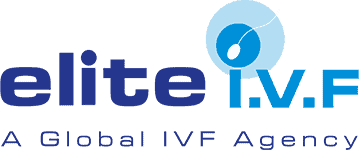When you’re considering becoming an egg donor, it’s critical to know the process of what that entails. Regardless of your motivation, whether it be compensation (in countries where it is allowed) or to give the gift of a child to another couple, the process can be time-consuming, albeit straightforward but definitely rewarding in immeasurable ways. Below, we offer a detailed explanation of the process and discuss some of the theoretical and minor risks involved (as in any medical procedure), so you know what to expect if you’re considering becoming an egg donor.
Egg Donation Process For the Egg Donor: Procedure and Risks
What is An Egg Donor?
An egg donor is a female individual who provides her eggs to a female recipient in order to achieve pregnancy. The recipient can be either the intended parent or a surrogate. Wanting to become an egg donor can stem from many motivations, like financial remuneration or doing a wonderful thing for a family who can’t conceive.
What is the Egg Retrieval Procedure
When you decide you want to become an egg donor, you have to be considered a suitable donor. There is a selection process and a legal contract. Donors who are selected and proceed to the egg donation phase will then be required to take medication to control their menstrual cycle and hyperstimulate the ovaries so that they produce several eggs at once instead of just one. Once the donor is ready, the egg retrieval process begins. Typically, between five and twenty-four eggs are retrieved during the retrieval process. These eggs can be frozen for other donations or used all at once until one recipient has a viable pregnancy.
Step-by-Step Process
Wondering what exactly the whole process involves? Here is the step-by-step process for egg retrieval.
Consultation and Screening
Depending on your fertility clinic, the requirements for becoming an egg donor may vary. At ELITE IVF, if you are between 18 and 34, maintain a healthy lifestyle and weight, have regular monthly periods, and are committed to the egg donation process, you may qualify to be an egg donor.
If you fit the criteria, you’ll complete the extensive application process to ensure you are the right fit to become a donor. You may need to attend a few doctor’s appointments to ensure you’re in good health. You may also need to undergo a gynecological exam, provide blood and urine tests, provide your family medical history, and undergo a psychological evaluation.
Cycle Preparation
Once you’re an approved donor, you’ll begin the cycle preparation process. You will be required to take medication that alters your hormones to mature your eggs. You will need to give yourself injections and will likely need tests to ensure adequate hormone levels.
Synchronization
Synchronization is when the donor and the recipient’s cycles are synchronized. Whether it’s the intended parent or a surrogate, the recipient must be ready for the embryo transfer, so the two cycles must be matched. Doctors will achieve this by prescribing birth control pills. Once the cycles are synchronized, the egg donor will hyperstimulate their eggs with medication to produce several eggs. The donor is closely monitored during this time with ultrasounds and blood tests. In the meantime, the recipient will also be prescribed medication to prepare the uterine lining for implantation.
Egg Retrieval
When your eggs are matured and ready for retrieval, your doctor will give you a trigger shot of hCG. Around 34 to 36 hours after the shot, you will go in for retrieval. You will be sedated, and the retrieval time is around 15 to 30 minutes with a small needle that carefully retrieves the eggs from your ovaries. The process of this is called transvaginal ovarian aspiration. Egg retrieval is considered a minor procedure and won’t require a prolonged hospital stay.
Embryo Transfer
Once the eggs are retrieved, they can be fertilized with the intended father’s sperm to create fresh embryos ready for transfer back into the intended mother (recipient), or they can be frozen for future use. Once fertilized, they can be transferred into the recipient’s uterus.
Is It Painful?
While you may feel discomfort during the many medications you’ll be taking, it’s difficult to say how much pain you may feel. Depending on your pain tolerance, how your body reacts to medications or any potential complications, discomfort or pain is possible.
Cramping Before Egg Retrieval Surgery
There is a possibility that you may feel cramps comparable to period cramps before the procedure due to the medication and hormones you will be taking.
Egg Retrieval Recovery
Depending on the amount of sedation you received for the procedure, you may need some time before being discharged. Coming out of sedation may leave you feeling dazed, so you will want to rest after the procedure. Every donor is different, so you may feel okay in a few hours or feel like you need a few days to recover. ELITE IVF’s team will provide a post-egg retrieval check-up one to two days after the procedure to ensure you are doing well and healing okay. We closely monitor you to ensure you recover without complications. We always recommend speaking with a psychotherapist after the procedure, as it may have a psychological impact.
Is It Painful?
Depending on your tolerance and how your body handles the medications and excess hormones, you may feel some minor pain or discomfort akin to the monthly menstrual cramping all women feel from time to time. After the egg retrieval procedure, common side effects include bloating, spotting, cramping, or vaginal soreness. Typically, any discomfort disappears in a few days. If you find you’re in considerable pain, your doctor may be willing to provide a prescription for pain killers. You may also opt to use a heating pad. If you develop a fever, infection, or heavy bleeding, please seek medical attention immediately. The goal of the medical team at ELITE IVF is to avoid any feelings of discomfort or pain and this is achieved through careful regular monitoring and management of the donor cycle. It’s in our interest to give the best donation experience possible to our donors and we achieve this by doing “soft stimulation” protocols that avoid any pain or discomfort.
Discomfort or Pain After Egg Retrieval
After the eggs have been retrieved, you may notice a sensation of discomfort. This is caused by the ovaries refilling with fluid, and the follicles become stretched, leading to discomfort.
Back Pain After Egg Retrieval
It can be very common for donors to feel lower back pain or pelvic pain after a retrieval procedure. Having pain in this area is common after pelvic procedures and is likely just pelvic irritation. Back pain after egg retrieval typically resolves itself quickly.
Egg Donor Criteria
There are a few main criteria that we look at for potential donors. At ELITE IVF, if you are between the ages of 18 and 34, maintain a healthy lifestyle and weight, have regular monthly periods, and are committed to the egg donation process, you are an ideal candidate.
Typically, the age can range between 18 and 35 years old to have a donor with peak fertility. Donors should not have infections like Hepatitis C or HIV, a high risk of genetic diseases, or carry the cystic fibrosis gene.
Once you have met the criteria, you will begin the screening process. In the US, the FDA has guidelines to follow to become a donor. The process may include an application, interview, physical exam, blood tests, ultrasound, drug tests, medical history, psychological assessment, infectious disease screening, and inherited disease screening. As a donor candidate, you will benefit from gaining a lot of insight into yourself and your well-being through this medical review process as well as receive free gynecological and genetic advice.
The psychological assessment is an integral part of the process, as becoming a donor can be an emotional experience. Even the most committed donors could benefit from psychological support during this time.
Egg Donation Risks
While egg donation risks are relatively low, it’s essential to understand all of them before opting into the procedure. The medications used during the process are the same as a woman undergoing IVF treatments, and the risks are similar. The use of sedatives or anesthetics during the procedure carries a very small risk. However, serious problems are quite uncommon.
During the procedure, there is a risk of bleeding when the doctor inserts the needle into the ovary. The donor may experience some bleeding or damage to nearby blood vessels, the bladder, or the bowel, but this is unlikely and rare.
With any procedure, there is a risk of infection. Your doctor may prescribe some antibiotics to avoid this.
One of the side effects of the medications prescribed for ovulation may cause OHSS or Ovarian hyperstimulation syndrome. OHSS can be mild, moderate, or severe. In any case, it’s critical to consult a doctor, as severe OHSS can result in a hospital stay. Symptoms of OHSS to be aware of are stomach pain, vomiting, rapid weight gain, and difficulty breathing.
Egg Donation Contract
Depending on your state or country, there can be various rules and regulations around donating your eggs. Your clinic will be able to provide you with all the guidelines for your area. Once you’ve donated your eggs, children who come from those eggs are not your legal children. The intended parents are their legal guardians. It’s imperative to create a legal agreement between you and the recipient (intended parents) to protect everyone involved and ensure you’re adequately compensated. Some aspects that may be included are custody and parenting, any future contact, anonymity, medical information exchange, the details of the procedure, financial compensation, and expenses.
Donor Anonymity
At ELITE IVF, as an egg donor, you can rest assured that you will remain anonymous. The donors’ ID is always confidential, and we do not disclose any of this information to the recipient or intended parents.
If you’re considering becoming an egg donor, ELITE IVF can help. At ELITE IVF, our team of compassionate professionals is here to help you become an egg donor to give the gift of a family to someone else. Contact us today for more information and find out our team can help you navigate your egg donor journey.


